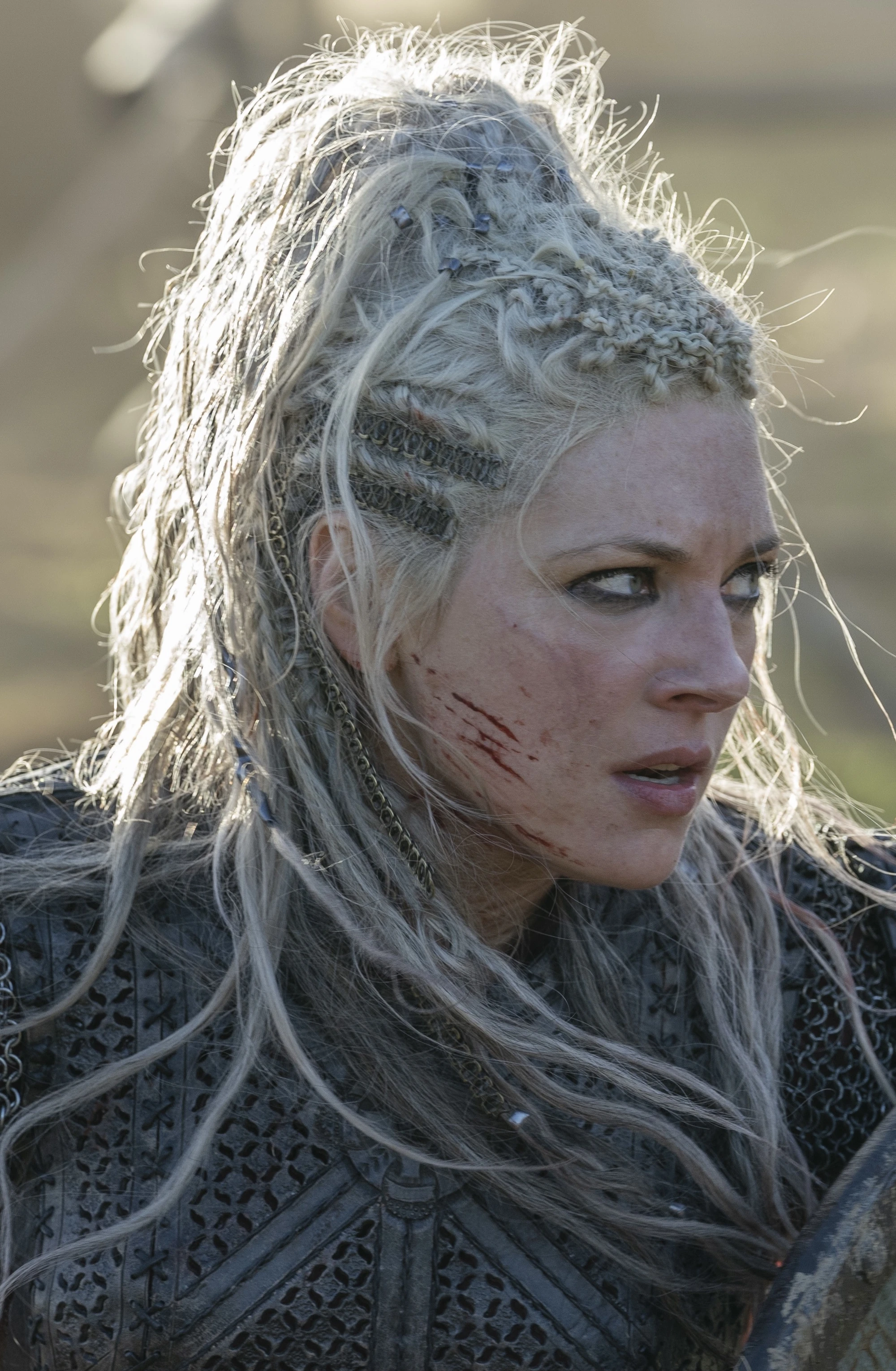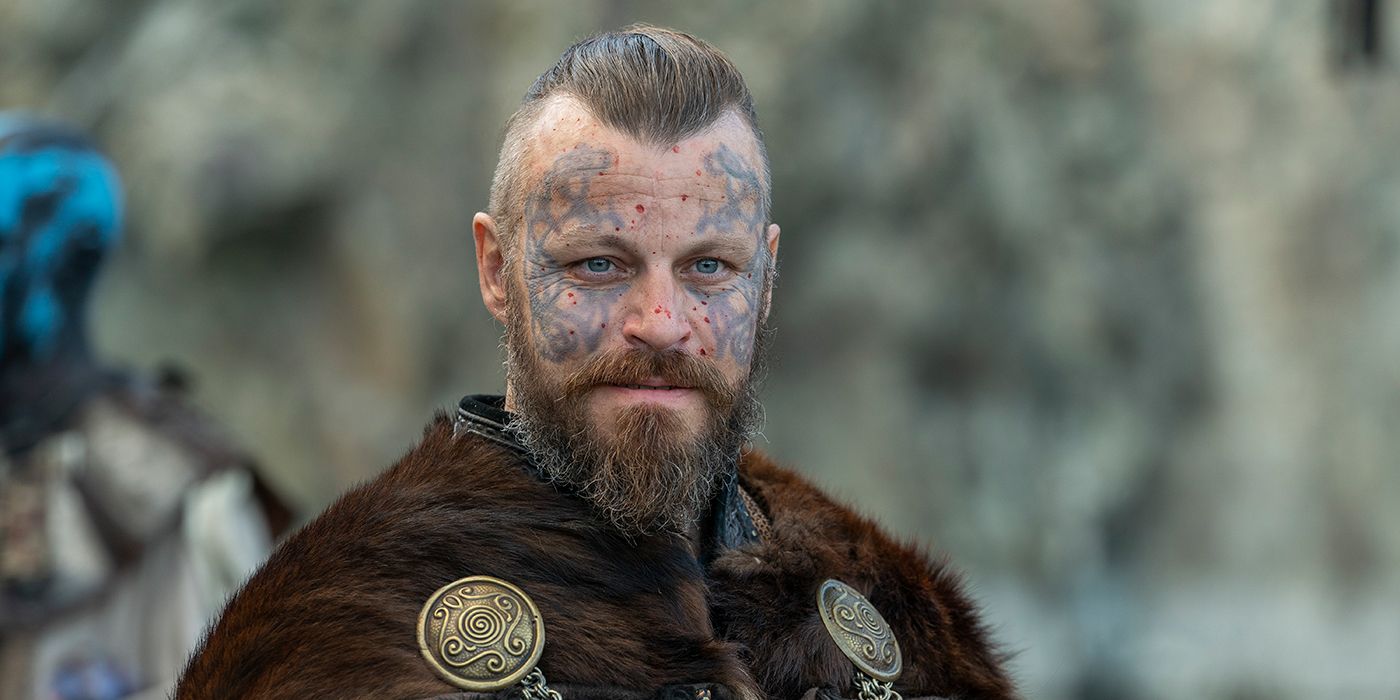The world of "Vikings" is a rich tapestry of compelling characters who bring the legendary era of Norse history to life. This critically acclaimed series, created by Michael Hirst, has captivated audiences worldwide with its intricate storytelling and unforgettable personalities. As we delve into the lives of these characters, we uncover the depth and complexity that make the show a masterpiece of historical drama.
"Vikings" is more than just a television series; it's an exploration of the human condition set against the backdrop of Viking Age Scandinavia. Each character in the show is meticulously crafted to reflect the values, struggles, and triumphs of their time, making them relatable and engaging to modern audiences.
Through this article, we will explore the key characters in "Vikings," their roles, and the impact they have on the unfolding narrative. Whether you're a die-hard fan or new to the series, this deep dive into the characters will provide valuable insights into the world of "Vikings."
Read also:Jasmine Tea Leak Unveiling The Controversy And Its Implications
Table of Contents
- Introduction to the Characters in the Show Vikings
- Ragnar Lothbrok: The Legendary Leader
- Lagertha: The Shield Maiden
- Floki: The Eccentric Shipwright
- Bjorn Ironside: The Son of Ragnar
- Ragnar's Sons: A Dynasty of Warriors
- Athelstan: The Monk Who Changed History
- Kathryn: The Strong-Willed Princess
- Judith: The Anglo-Saxon Queen
- Historical Context of the Characters
- Conclusion and Final Thoughts
Introduction to the Characters in the Show Vikings
The characters in "Vikings" are the heart and soul of the series. Each one plays a vital role in shaping the narrative, whether through their bravery, cunning, or moral dilemmas. The show is renowned for its ability to weave complex characters into a compelling storyline that resonates with viewers.
From Ragnar Lothbrok, the legendary Viking warrior, to Lagertha, the fearless shield maiden, each character brings something unique to the table. Their interactions, alliances, and conflicts drive the plot forward, creating a dynamic and engaging experience for the audience.
As we explore these characters, we will uncover the layers of their personalities, their motivations, and the historical context that informs their actions. This comprehensive guide aims to provide a deeper understanding of the characters in "Vikings" and their significance in the series.
Ragnar Lothbrok: The Legendary Leader
Ragnar Lothbrok is perhaps the most iconic character in "Vikings." Known for his ambition, intelligence, and relentless pursuit of adventure, Ragnar is the driving force behind the series. His desire to explore new lands and challenge traditional Viking ways sets the stage for the show's events.
Ragnar's Legacy and Achievements
Ragnar's legacy is built on his exploits as a warrior and explorer. He leads successful raids on English monasteries, expanding Viking influence beyond Scandinavia. His leadership inspires loyalty among his followers and fear in his enemies.
- Ragnar's first raid on England marks a turning point in Viking history.
- His alliances with local rulers and his strategic thinking set him apart from other Viking leaders.
- Ragnar's personal life, marked by his relationships with Lagertha and Aslaug, adds depth to his character.
According to historical records, Ragnar Lothbrok is a figure of legend and myth, with many of his exploits exaggerated over time. However, his impact on Viking history is undeniable, making him a central figure in the series.
Read also:Veefroggy Leaks Unveiling The Controversy And Facts You Need To Know
Lagertha: The Shield Maiden
Lagertha, the shield maiden, is one of the most formidable characters in "Vikings." Known for her strength, courage, and leadership, Lagertha is a role model for women in the series. Her relationship with Ragnar is both passionate and complex, adding layers to her character.
Lagertha's Role in Viking Society
Lagertha's role in Viking society is unique. As a shield maiden, she defies traditional gender roles, proving that women can be just as capable as men in battle. Her leadership qualities are evident in her governance of Kattegat and her military campaigns.
- Lagertha's skills as a warrior are unmatched, earning her respect from her peers.
- Her political acumen and strategic thinking make her a valuable ally and adversary.
- Lagertha's personal life, marked by her relationships with Ragnar and later King Harald, adds depth to her character.
Lagertha's character is inspired by historical accounts of shield maidens, women who fought alongside men in battle. Her portrayal in "Vikings" highlights the contributions of women in Viking society and challenges stereotypes about gender roles.
Floki: The Eccentric Shipwright
Floki, the eccentric shipwright, is one of the most fascinating characters in "Vikings." Known for his devotion to the Norse gods and his unconventional behavior, Floki adds a unique dimension to the series. His friendship with Ragnar is one of the most enduring relationships in the show.
Floki's Relationship with the Norse Gods
Floki's deep connection to the Norse gods influences his actions and decisions throughout the series. His devotion to Odin and the other deities is a central part of his character, shaping his worldview and behavior.
- Floki's belief in the gods drives his actions, often leading to unpredictable outcomes.
- His role as a shipwright is crucial to the success of Ragnar's raids, showcasing his importance to the Viking community.
- Floki's personal struggles and mental health issues add complexity to his character, making him relatable and human.
Floki's character is inspired by historical accounts of Viking religious practices and the role of shipwrights in Viking society. His portrayal in "Vikings" highlights the spiritual and cultural aspects of Viking life.
Bjorn Ironside: The Son of Ragnar
Bjorn Ironside, the son of Ragnar Lothbrok, is one of the most promising characters in "Vikings." Known for his leadership skills and determination, Bjorn becomes a key figure in the series as it progresses. His journey from a young warrior to a seasoned leader is a central theme in the show.
Bjorn's Leadership and Achievements
Bjorn's leadership qualities are evident from an early age. He leads successful raids and expands Viking influence across Europe, earning the respect of his peers and adversaries alike.
- Bjorn's leadership in the Mediterranean marks a significant achievement in Viking history.
- His relationship with Lagertha and his siblings adds depth to his character, showcasing his personal struggles and triumphs.
- Bjorn's commitment to upholding his father's legacy drives his actions throughout the series.
Bjorn's character is inspired by historical accounts of Viking leaders and their descendants. His portrayal in "Vikings" highlights the importance of family and legacy in Viking culture.
Ragnar's Sons: A Dynasty of Warriors
Ragnar's sons, including Bjorn Ironside, Ivar the Boneless, and Sigurd Snake-in-the-Eye, form a formidable dynasty of warriors. Each son brings something unique to the table, contributing to the family's legacy and influence in Viking society.
The Dynamics of Ragnar's Sons
The relationships between Ragnar's sons are complex and often fraught with tension. Their alliances and conflicts shape the course of the series, driving the narrative forward.
- Ivar the Boneless, known for his intelligence and cunning, plays a pivotal role in the family's success.
- Sigurd Snake-in-the-Eye, with his mysterious aura and strategic thinking, adds depth to the family dynamic.
- Their collective efforts to expand Viking influence across Europe highlight the strength and unity of Ragnar's legacy.
Ragnar's sons are inspired by historical accounts of Viking leaders and their descendants. Their portrayal in "Vikings" highlights the importance of family and legacy in Viking culture.
Athelstan: The Monk Who Changed History
Athelstan, the monk who becomes a close friend of Ragnar, is one of the most intriguing characters in "Vikings." His conversion to Norse beliefs and his role as a bridge between cultures adds a unique dimension to the series.
Athelstan's Impact on Viking Culture
Athelstan's influence on Viking culture is profound. His knowledge of Christianity and his ability to translate between cultures make him an invaluable asset to Ragnar and his followers.
- Athelstan's conversion to Norse beliefs challenges traditional religious boundaries, showcasing the complexity of cultural exchange.
- His role as a mediator between Vikings and Christians highlights the importance of diplomacy and understanding in historical conflicts.
- Athelstan's tragic fate underscores the dangers of cultural and religious differences in Viking society.
Athelstan's character is inspired by historical accounts of cultural exchange and religious conversion in the Viking Age. His portrayal in "Vikings" highlights the complexities of cross-cultural interactions.
Kathryn: The Strong-Willed Princess
Kathryn, a strong-willed princess, is one of the key characters in the later seasons of "Vikings." Her alliance with the Vikings adds a new dimension to the series, showcasing the political and strategic aspects of Viking society.
Kathryn's Role in Viking Politics
Kathryn's role in Viking politics is crucial. Her intelligence and strategic thinking make her a valuable ally to the Vikings, influencing the course of events in the series.
- Kathryn's alliance with the Vikings highlights the importance of political alliances in Viking society.
- Her personal struggles and triumphs add depth to her character, making her relatable and human.
- Kathryn's impact on Viking history underscores the influence of women in political and military affairs.
Kathryn's character is inspired by historical accounts of powerful women in Viking society. Her portrayal in "Vikings" highlights the contributions of women in shaping historical events.
Judith: The Anglo-Saxon Queen
Judith, the Anglo-Saxon queen, is another key character in "Vikings." Her relationship with King Aelle and her interactions with the Vikings add a new layer of complexity to the series.
Judith's Influence on Viking Society
Judith's influence on Viking society is significant. Her intelligence and strategic thinking make her a formidable opponent and ally to the Vikings.
- Judith's role in negotiating peace between the Vikings and the Anglo-Saxons highlights the importance of diplomacy in historical conflicts.
- Her personal struggles and triumphs add depth to her character, showcasing her resilience and determination.
- Judith's impact on Viking history underscores the influence of women in shaping historical events.
Judith's character is inspired by historical accounts of powerful women in Viking society. Her portrayal in "Vikings" highlights the contributions of women in shaping historical events.
Historical Context of the Characters
The characters in "Vikings" are inspired by historical figures and events from the Viking Age. Understanding the historical context of these characters adds depth to their portrayal in the series.
- The Viking Age, spanning from the late 8th century to the early 11th century, was a period of exploration, conquest, and cultural exchange.
- Historical records, such as sagas and chronicles, provide valuable insights into the lives of Viking leaders and their interactions with other cultures.
- The portrayal of characters in "Vikings" is informed by historical research and archaeological evidence, ensuring authenticity and accuracy.
By exploring the historical context of the characters, we gain a deeper understanding of their motivations and actions, enriching our appreciation of the series.
Conclusion and Final Thoughts
The characters in "Vikings" are a testament to the rich and complex world of Norse history. From Ragnar Lothbrok to Lagertha, each character brings something unique to the series, contributing to its success and


